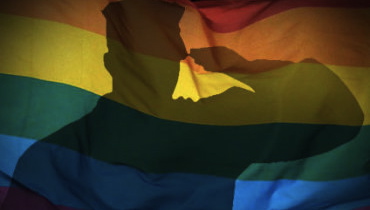 By Huong T. Nguyen
By Huong T. Nguyen
NCLR Guest Columnist
At the beginning of this school year, Rowan, my 6-year-old son, held court in his first-grade class about “Don’t Ask, Don’t Tell” (DADT).
The unprompted conversation with his classmates went something like this:
Rowan: My mom was in the military.
Classmates: Really?
Rowan: Yeah, but she was kicked out because she was gay. (His peers gathered around to hear his tale.)
One classmate: No, I don’t believe you!
Rowan: No, really, I saw her uniform! In the “olden” days, gays weren’t allowed to be in the military. But now, they can. My mom doesn’t want to go back because she has a family now.
Classmates: (Silent, in apparent admiration for the speaker whose mom served in the military or who got kicked out because she was gay, or because they really had nothing to say.)
Kids and their sense of time! Those “olden” days are not yet so old. In fact, although Congress repealed the discriminatory “Don’t Ask, Don’t Tell” policy at the end of last year, tomorrow will be the first day that the repeal will officially go into effect, due, in part, to the intense opposition to the repeal even after its passage.
Tomorrow, like most Americans, I will wake up early and help my kids get ready for school before I grab coffee, get dressed, and drive to work. Nothing exceptional will happen for us—except I will remind my kids of DADT’s official demise. Their reaction will likely be: “Mom, isn’t this old news?”
But tomorrow, in thousands of households across the world, American lesbian, gay, and bisexual soldiers and their families will let out a big collective sigh of relief. Their lives will be much more secure, and the pressure of having to monitor every statement and action will be gone. Starting tomorrow, an Army medical officer, home after her second tour in Afghanistan, could be greeted with public displays of love and affection at the airport by her wife. A Navy mechanic could name his husband as his emergency contact without fear.
A Marine officer could bring her girlfriend to the yearly Marine Birthday Ball. Civilians and straight soldiers alike take these life events for granted, but the repeal will usher in significant, tangible changes in the lives of lesbian, gay, and bisexual soldiers and their families.
DADT’s demise does not simply mean the repeal of an 18-year-old law. While that’s true, let’s not forget that LGB soldiers have been legally discriminated against since the founding of this country through previous iterations of the ban. More than that, the repeal means that hundreds of years of state-sponsored prejudice against LGB soldiers are no longer legally acceptable in at least one form. It means that those who have been discharged or driven out of the military prematurely—likely numbering in the tens of thousands throughout history—are vindicated by the repeal; they have not suffered in vain. And, perhaps most importantly, future generations of our lesbian, gay, and bisexual sons and daughters will no longer endure the same pain, suffering, or devastating loss to their careers as their predecessors did.
The repeal also has far reaching consequences for all Americans. We can take some comfort by looking to certain events that ushered in the Civil Rights Movement of the 1960s for African Americans as a loose guide to the changes that could occur in the years to come for the gay rights movement (footnote: used for lack of a better, shorter, and more inclusive name). Significantly, only a mere 19 years separate President Truman’s executive order in 1948 integrating black and white troops and the United States Supreme Court’s 1967 decision in Loving v. Virginia striking down laws prohibiting interracial marriages. That’s less than a generation apart, and well within some of our lifetimes, if what’s past is prologue.
Maybe the first graders have it right all along. We adults take things too seriously sometimes. The goal is to work toward a time—perhaps inwhen our kids can say—in 20 years (and here I’m channeling Rowan at 25): “Can you believe it? In the “olden” days, people used to believe it was okay to discriminate based on sexual orientation or gender identity. How stupid!”
`
NCLR Guest Columnist Huong T. Nguyen has shared her military dismissal under “Don’t Ask, Don’t Tell” through her weekly diary blog series. Read Part One: Where There’s a Will, There’s a Way, Part Two: Light Bulb, Part Three: A New Identity, Part Four: The Education of Private Nguyen, Part Five: The Girl, Part Six: No Air, Part Seven: The Truth Will Set You Free, Part Eight: The Trial, Part Nine: The Story, Part 10: There’s A Place For Us, Part 11: The Repeal: No One Left Behind,and Finale: Don’t Ask, Don’t Tell”: In the Olden Days.
`
Nguyen is an attorney in the San Francisco Bay Area, where she resides with her wife and two children.

 By Huong T. Nguyen
By Huong T. Nguyen







